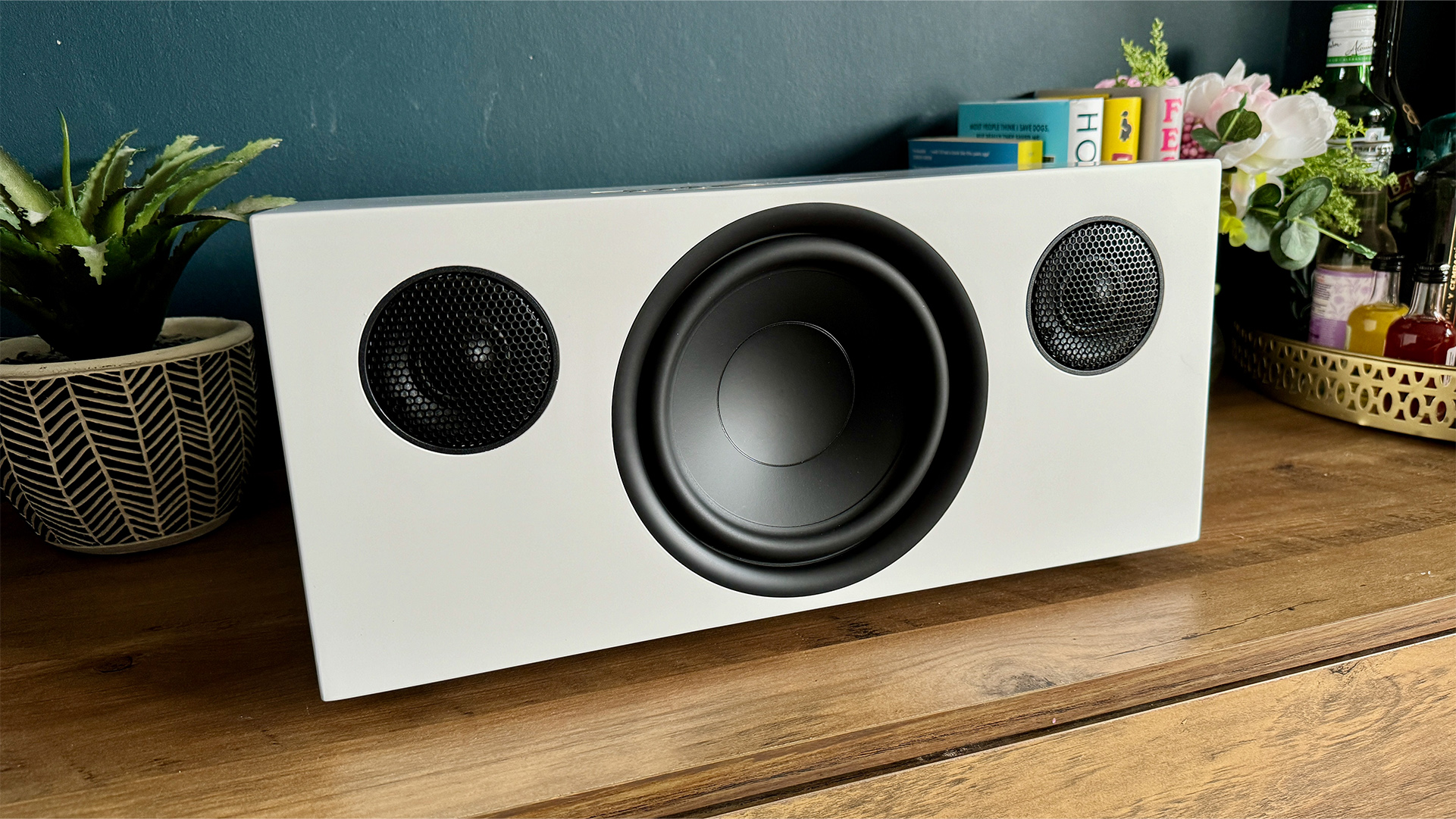Inside the UK’s first Dolby Cinema: 400 speakers, Dolby Atmos and a Compton organ
A spectacle and sonic marvel
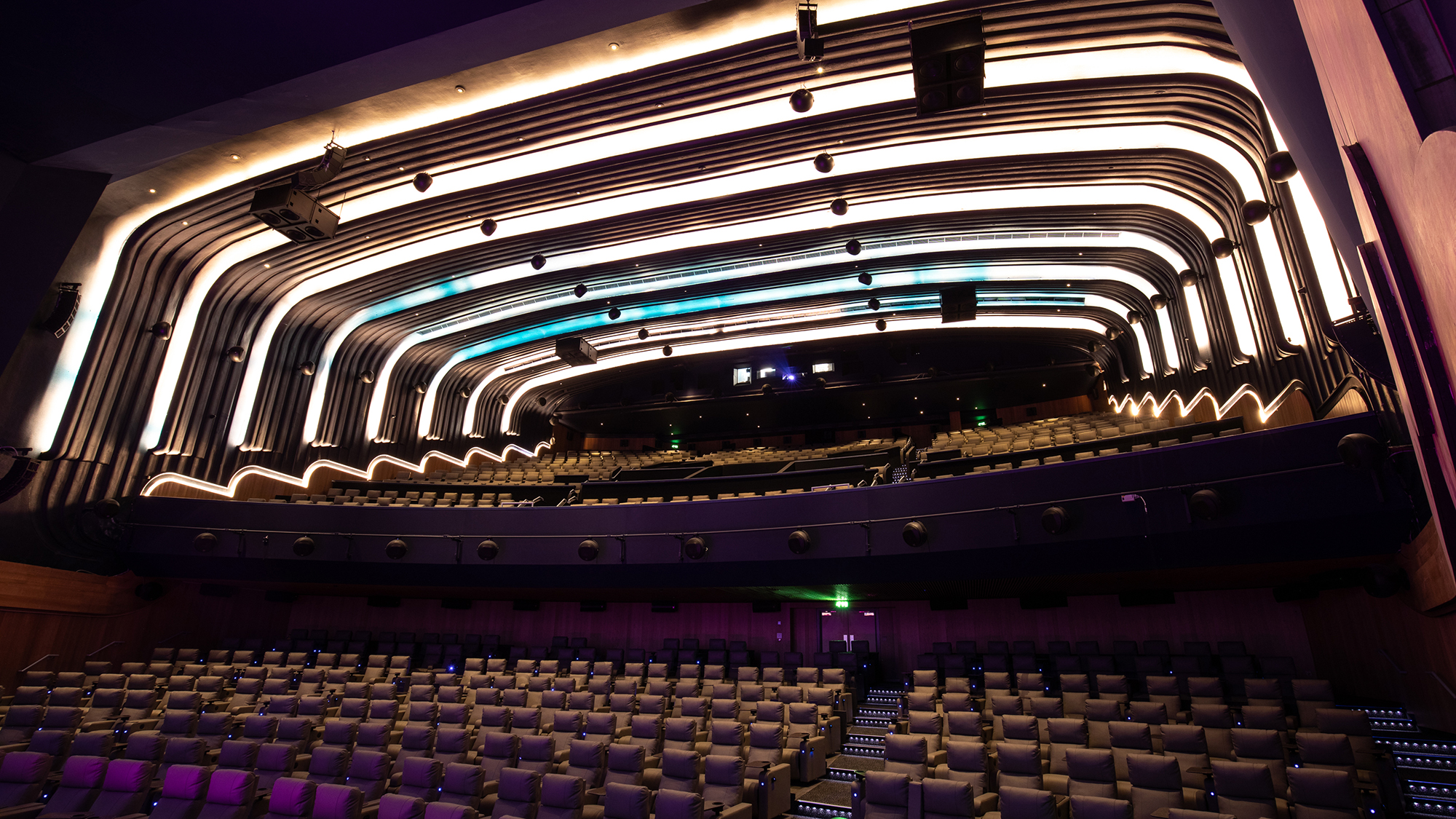
Dolby’s audio technologies have had a home in movie theatres since the mid-1970s, its stereo and surround formats laying the foundations for the movie-going experience ever since.
While the relationship between Dolby and cinema remains strong, it's only in the last few years that the two have come together in an official capacity to create a proprietary cinematic experience.
Dolby Cinema became a thing in 2014, but only since last month have UK cinema-goers had access to one. On 21st December 2018, Odeon’s European flagship cineplex in the cinema-centric heart of London's West End re-opened its doors after undergoing a multi-million, 11-month refurbishment.
Screen 1 of the historic venue, now officially named ‘Odeon Luxe Leicester Square’ and home to over 700 Europe film premieres since 1937, features the UK’s first Dolby installation, promising the best picture and sound experience in the UK in a theatrical domain.
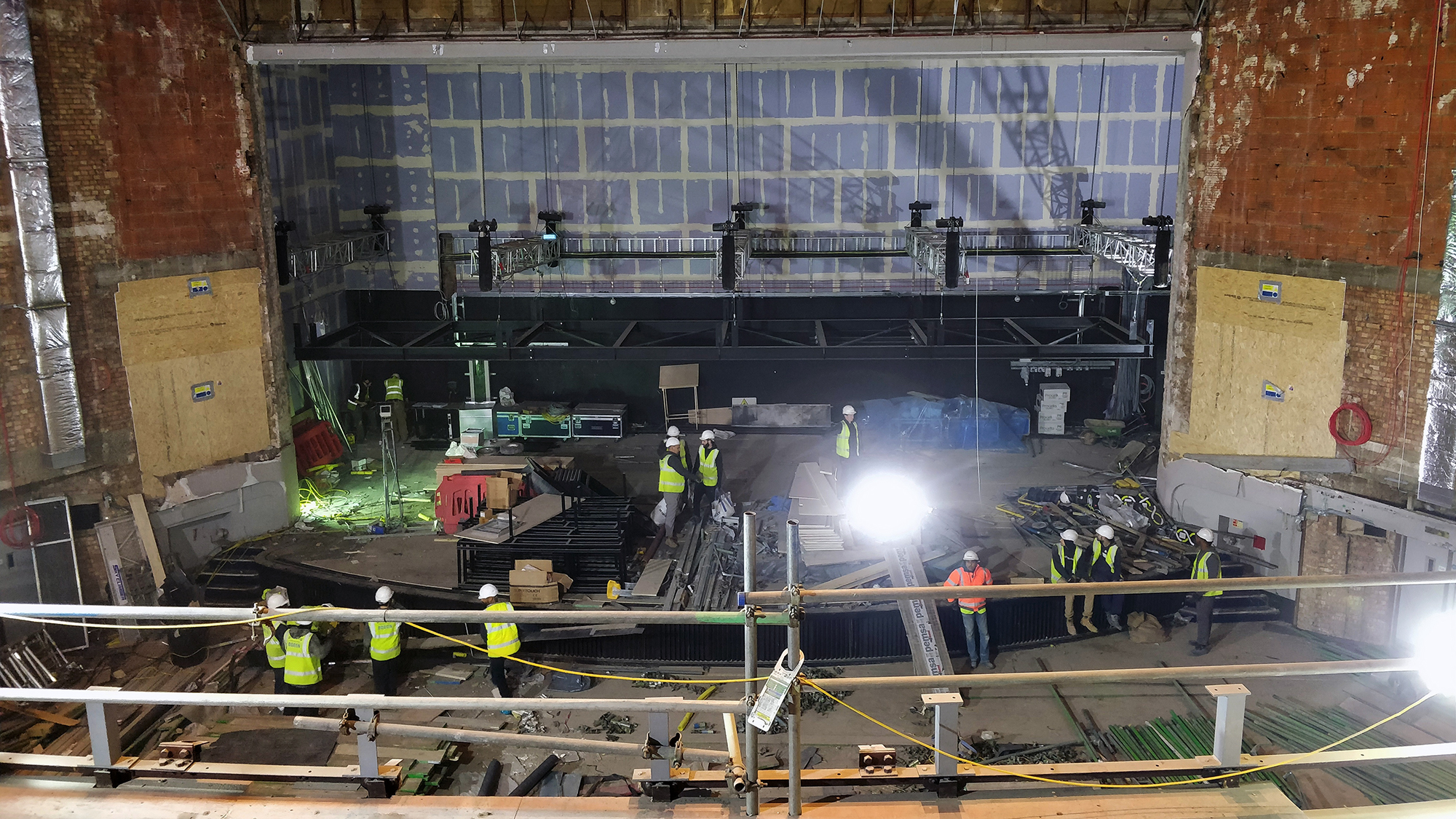
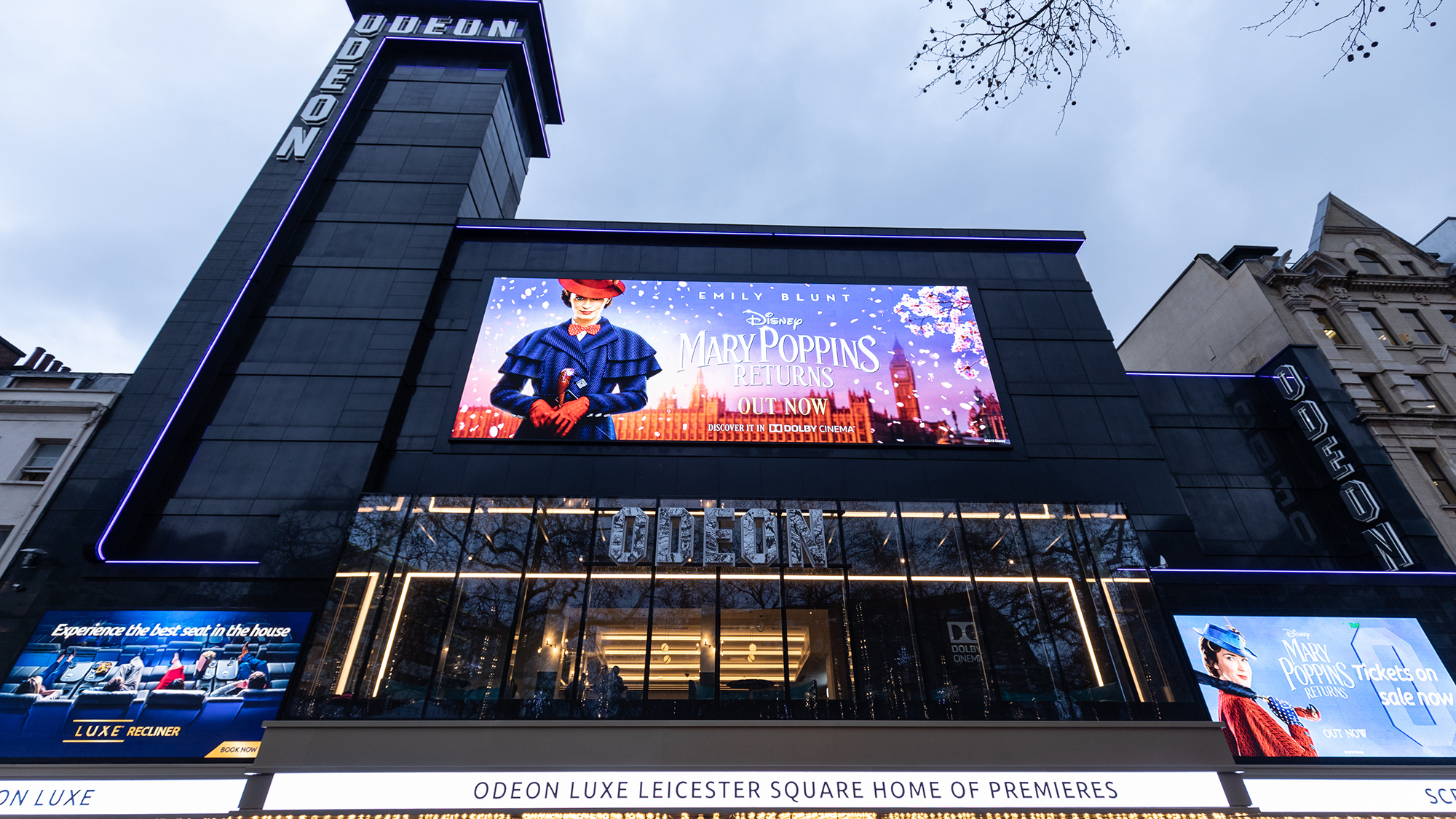
The Dolby in the cinema
With 400 speakers in a 800-seat auditorium, it is certainly a dramatic stage. But, as with our trip to the Pathé Massy Dolby Cinema in Paris last year, the linchpin of Dolby Cinema is the combination of Dolby Atmos surround sound and Dolby Vision HDR picture – audio and visual technologies that represent the pinnacle of home cinema entertainment.
Atmos expands on 5.1- and 7.1-channel surround sound by allowing up to 128 channels in a mix, enabling overhead sound and a flexible and precise object-based mixing process (as opposed to channel-based).
Vision, meanwhile, is one of a handful of well-established High Dynamic Range (HDR) formats, promising optimal brightness, contrast and colour performance, dynamically adjusted on a frame-per-frame basis depending on the nature of the content.
Get the What Hi-Fi? Newsletter
The latest hi-fi, home cinema and tech news, reviews, buying advice and deals, direct to your inbox.
- Dolby Atmos: What is it? How can you get it? What speakers do you need?
- Dolby Vision HDR: everything you need to know
To make good on the promise of audiovisual reverie, interior design (and construction) had to be considered. Preserving the venue’s history was a priority – looking after its 80-year history while also looking forward with new technology.
Screen 1 features the original safety curtain design with Flying Ladies figures flanking it. There’s an orchestra pit for live events, and a Compton organ that rises up through the stage.
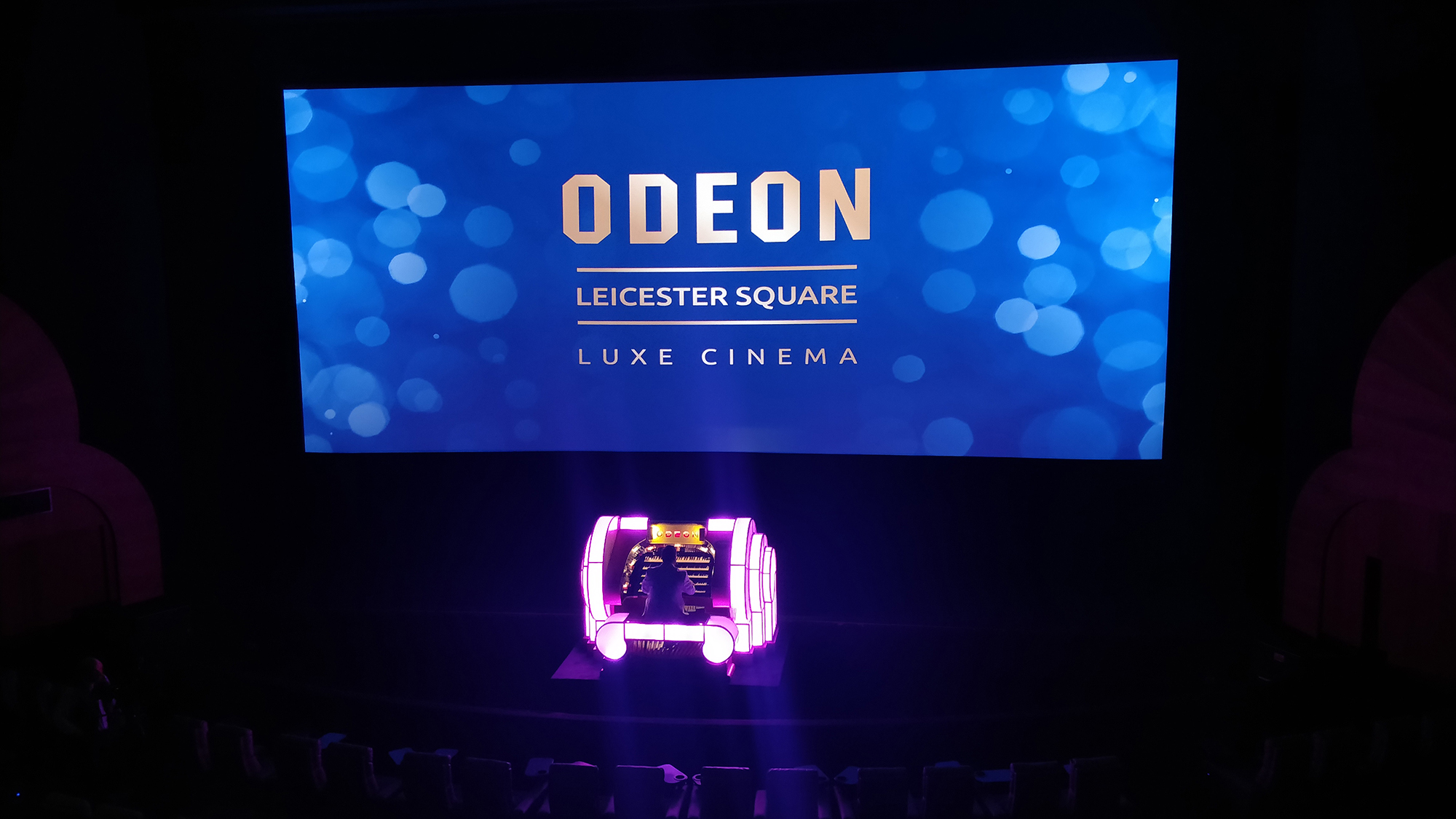
Everything is black – seats, walls, carpets and ceiling – to reduce reflective light. The seating is in curved rows, positioned away from the walls, and made up of 350 Luxe Recliners and 450 Luxe Classic rockers.
A wall behind the screen isolates the auditorium from the adjacent hotel. The ceiling is covered with acoustically transparent material and has been reinforced to hold the 10 miles of speaker cable running above it, as well as the bespoke speaker stack configurations hanging off it.
A total of 400 speakers present the Dolby Atmos soundtracks, offering what Odeon says is full sound coverage in the auditorium. There are multiple tiers of line arrays (ie. speaker stacks) in 120 speaker locations – 100 of which are behind the screen – to project out into the room.
The magic source is custom proprietary Christie dual laser projectors, standard across Dolby Cinemas, which in this case beam onto a 25,000kg floating screen that can go backwards if required.
While the xenon bulb projectors typically found in cinemas are capable of beaming 48-nit brightness and 2000:1 contrast ratio onto a screen, Dolby says its Cinema projector systems reach 108 nits and over a 1,000,000:1 ratio.
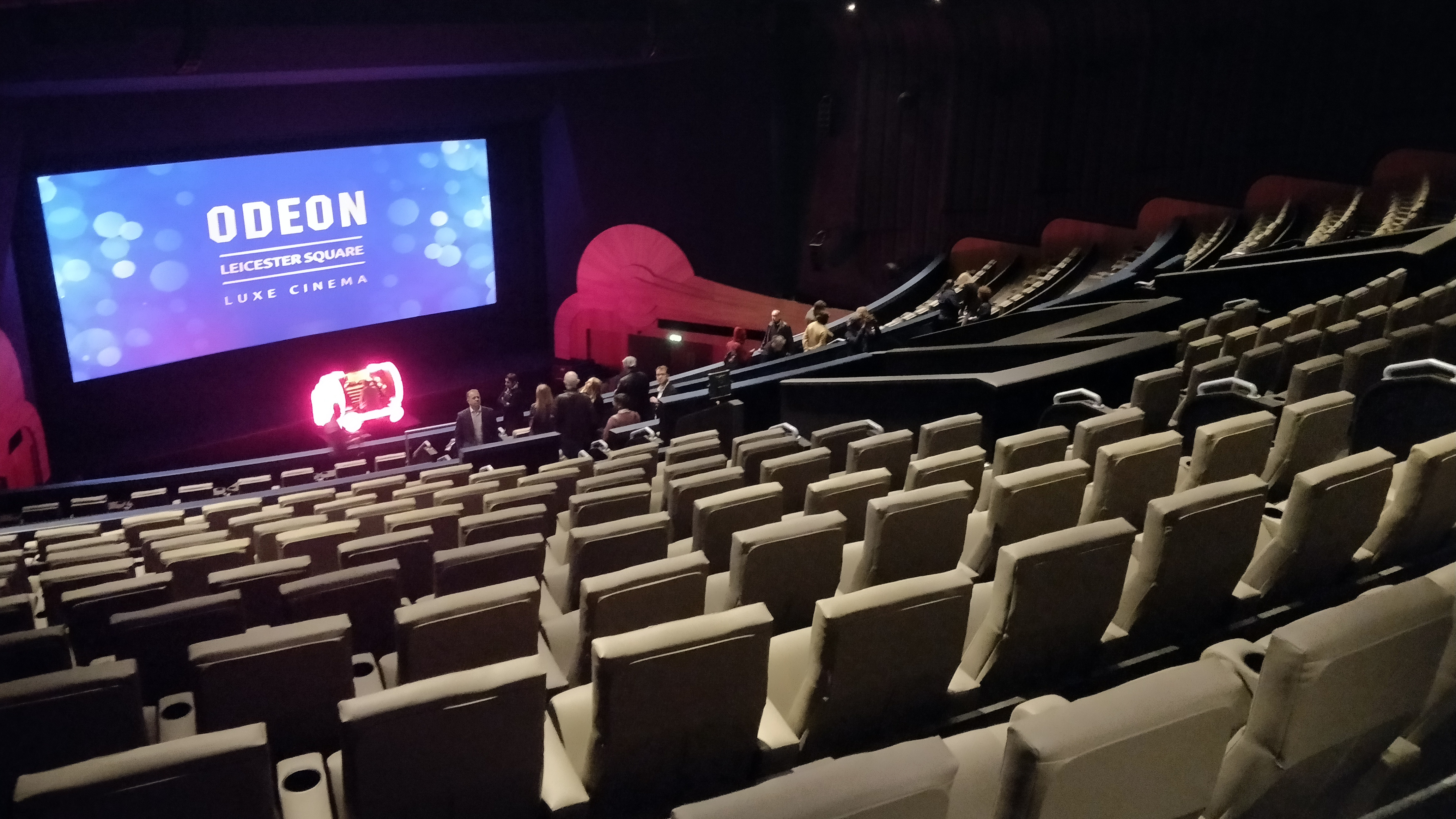
An audiovisual triumph
We need no encouragement to find ourselves a sumptuous Luxe Recliner and stretch out with the electric controls as we settle down for Mary Poppins Returns, the cinema’s opening film.
Dolby isn't genre-specific, claiming that Dolby Cinema is the best way to watch any film – so we can expect an eclectic line-up of listings in the future. And while the initial trailer for cyberpunk action-adventure Alita: Battle Angel, and a few snippets of other upcoming action movies, show off the sound system’s huge all-round capability and truly encompassing nature at its very, very best, Poppins is proof of that.
The audio and visual experience is almost incomparable to that offered by a typical cineplex – as a repeat viewing of Poppins the next day confirms. The film is an advert for Dolby Vision, its consistently splashy hues and animation an assault of colour, and the Dolby Cinema presentation does it justice. The soundtrack is just as engaging - everywhere, in every direction, loud and enveloping.
While we have praised Dolby Vision and Atmos presentations in a home cinema environment, naturally living room set-ups can't match this for scale. The Dolby Cinema is a spectacle and sonic marvel.
“Practically perfect in every way”, to borrow a line from cinema’s best-loved nanny? It's not far off at all, although an inherent problem is that, from the back of the auditorium, the screen looks modestly sized at best.
There simply isn't the same dizzying sense of awe at the screen as there is with the wall-to-wall, floor-to-ceiling IMAX screens. That said, the quality is unquestionable.
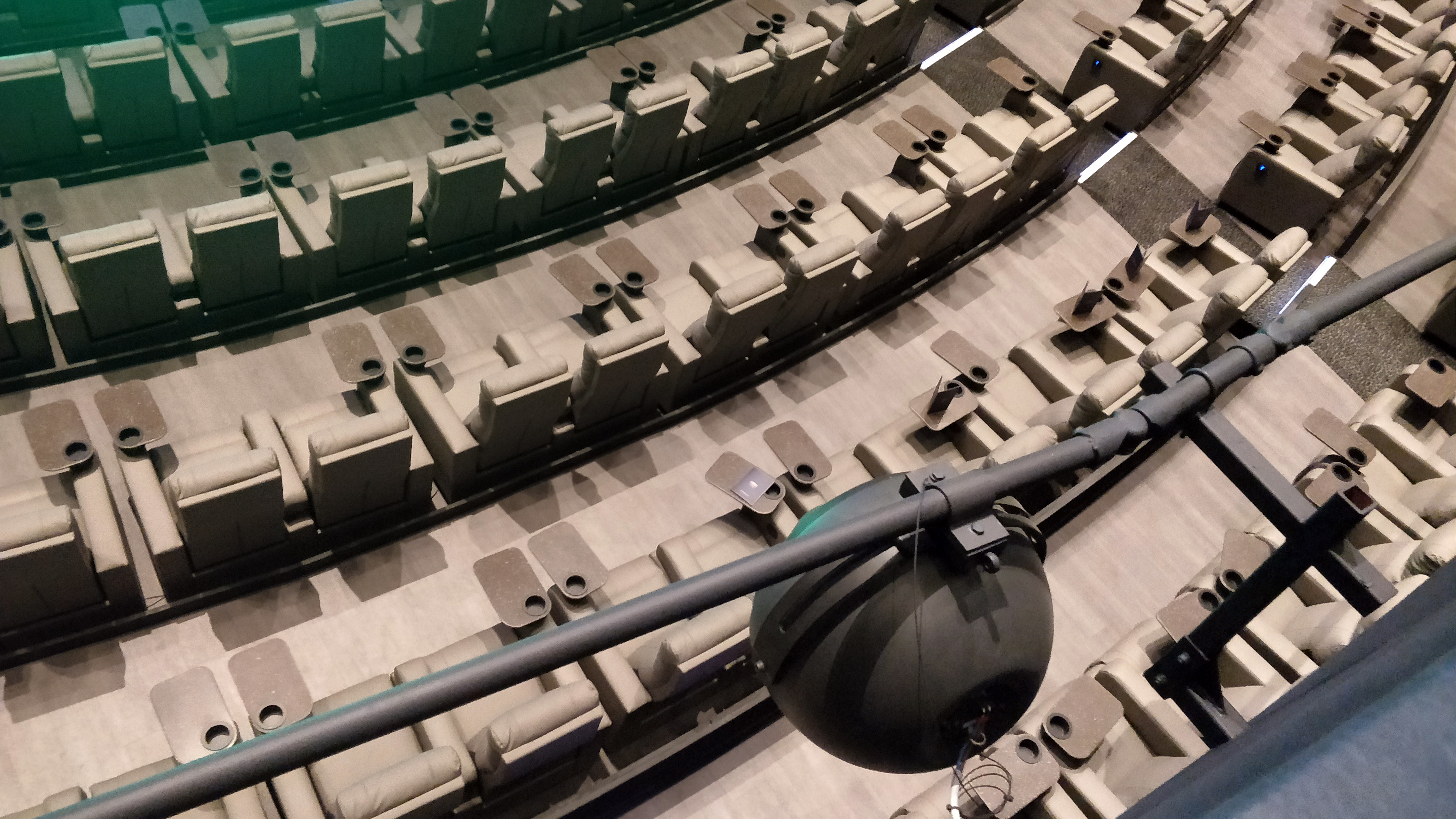
Premium experience, premium price
The Odeon Luxe Leicester Square’s Dolby Cinema experience isn’t cheap. What you may pay at your local cineplex, you can pay at this Dolby Cinema – but you’ll have to sit at the back.
The best seats in the house cost £30.75, and you’ll pay a minimum of £20.75 to sit in a Luxe Recliner, which offers a fully-reclining seat with extra legroom and a tray table. For a Luxe Classic rocker, prices vary between £10.75 and £15.75. Luxe Classic seats are included in Odeon's Limitless membership (unlimited films for £20/month), with a £5 upgrade for Luxe Recliners.
So while this may not be the choice for every cinema trip, it may be a treat for the most anticipated films of the year. Thankfully, 2019 has some big releases that should look and sound incredible in Dolby Cinema, with Captain Marvel, Avengers: Endgame, Star Wars: Episode IX, The Lion King and IT: Chapter Two all potential Screen 1 listings.
Seen Poppins already? The Dolby Cinema welcomes Stan & Ollie from 6th January.
Becky is the managing editor of What Hi-Fi? and, since her recent move to Melbourne, also the editor of the brand's sister magazines Down Under – Australian Hi-Fi and Audio Esoterica. During her 11+ years in the hi-fi industry, she has reviewed all manner of audio gear, from budget amplifiers to high-end speakers, and particularly specialises in headphones and head-fi devices. In her spare time, Becky can often be found running, watching Liverpool FC and horror movies, and hunting for gluten-free cake.

